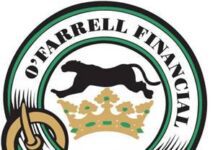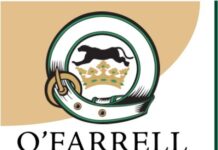by Sarah Chisholm
Financial Advisor, O’Farrell Financial Services
Grab a cup of tea or coffee and let’s take a closer look at the family cottage. How can you ensure the family cottage continues to generate happy memories, not taxes and family disputes?
If you’re lucky enough to own or have access to a family cottage, it’s never too early to consider taxes, probate, and future ownership. What happens to the cottage if mom and dad both pass away?
A cottage is a capital asset. This means when the owner sells the property or passes away, a deemed disposition creates a tax liability. What will the tax consequence be? Your capital gain is calculated as the fair market value of the cottage MINUS the original purchase price, cost of capital improvements and selling fees. You then claim 50% of your capital gain as income and your taxes owing are based on your marginal tax rate for the year. In Ontario this could be up to 53.53%.
Regarding Capital Improvements, renovations can be added to your adjusted cost base. This doesn’t include general upkeep – but when in doubt, keep the receipts!
It is crucial to consult a tax professional when considering your cottage’s future. Individuals or a family unit have access to the principal residence exemption, meaning the growth of your principal residence is not taxed. If you own two properties like a house and a cottage, you may be able to use the principal residence exemption on the cottage instead of your house.
In addition to regular taxes there is probate to consider. Assuming the cottage remained in mom and dad’s ownership until their final passing, the cottage asset then goes through probate. Currently in Ontario that means 0% on the first $50,000 of the estate and 1.5% on the portion over $50,000. For example, that means a $300,000 cottage would trigger up to $4,500 in probate fees. It might make sense to trigger a sale while living to avoid probate fees.
Since some taxes are unavoidable, it’s important to have a family discussion about future ownership and how taxes will be paid. If the goal is to keep the cottage in the family, will the estate have liquid assets to cover the taxes? A common strategy is to use permanent life insurance to fund the expected probate fees and taxes.
If the owners have multiple children, will all the kids inherit the cottage? If multiple siblings become owners, it is important to draft a family agreement in advance that lays out: property management, access to the cottage, dispute resolution and options/restrictions regarding sale of the cottage.
The family cottage can be lovely and is something worth protecting. A trusted lawyer will update your will, an accountant will confirm tax liabilities and a Financial Advisor can guide you through the options for current ownership and estate considerations. Refill your cup of tea and enjoy the cottage life.
We welcome questions so please reach out! See our ad in this week’s North Grenville Times and follow us on Facebook @OFarrellFinancialServicesInc.







